Kazan to become Volga land improvement centre
However, some regions refused to join the task force in Tatarstan, others complain about drawbacks of the union
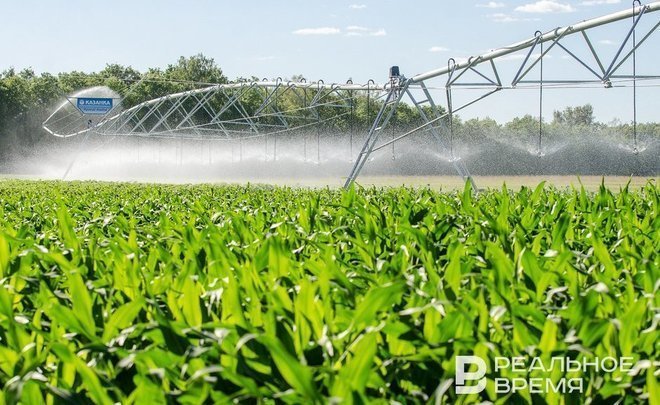
As Realnoe Vremya found out, Tatarstan was handed over the duties of taking care of land improvement issues for four Volga regions — Udmurtia, Kirov Oblast, Mari El and, in fact, for its needs. The process of uniting regional offices into one with its centre in Kazan ended by early May. Nizhny Novgorod and Kirov oblasts were against joining it, but Russia’s Ministry of Agriculture made concessions only to governor of “Moscow origin” Gleb Nikitin. As a result, the institution will be the only client and coordinator of the construction and repair of federal improvement areas with at least 500 million rubles of expected budget a year.
Hands-down union
The Russian Ministry of Agriculture is finishing the painful reform of enlarging its subordinate regional land improvement offices. They all operate as federal public institutions and supply water to farmland and other lands. The essence of the transformations is to optimise the structure of land improvement management.
Farmland improvement costs in the Volga region go up during drought in the harvest period, though the climate in the area is more favourable than, let’s say, in Kuban. This is why the designed structural transformation of the land improvement system didn’t bypass the Volga Federal District.
A new institution has started to operating since this week. According to the order of the Russian agriculture minister, local offices of three regions — Kirov Oblast, Mari El and Udmurtia — were annexed to it. Mars Khismatullin has chaired the united land improvement administration. The press service of the new organisation confirmed the information about the completion of transformation for Realnoe Vremya.
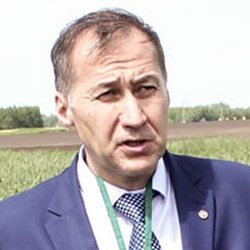
45,000 hectares of improved lands in four regions pass into his control. 320,000 hectares of this land is used in agriculture. “But not all improved lands are used in agricultural production, this is why new land will have to be reclaimed,” he noted.
Good rain for some, financial drought for others
Why did precisely Kazan become the point of “union” of offices of the three Volga regions? According to Mars Khismatullin, the federal ministry sets the task of expanding Tatarstan’s positive experience in farmland improvement in neighbouring regions.
“5,000ha of new land is used annually to grow agricultural produce in our republic thanks to the expansion of watering systems. A lot of vegetables grow in the open ground,” he said.
After the issue of the Russian Agriculture Ministry’s order, his team visited all “annexed regions,” he personally met agricultural ministers of all three regions of Russia, said Mars Khismatullin. He says that the republic can help agriculturists because we conserved construction capacities and design bureaus. “They will always help agriculturists from neighbouring regions to prepare a project to create an engineering watering system and provide watering and pump equipment,” noted Khismatullin.
In general the Tatarstan authorities splurge on farmland watering in the republic. A total of 6.4 billion rubles have been invested in land improvement in the region in the last seven years, more than half of the sum was funded by the republic’s budget, he reminded us. So a tranche of 1.6 billion rubles was allocated last year. It is huge money compared to modest budgets of Kirov Oblast and Mari El. They mainly receive federal subsidies of some 30-50 million rubles a year for water supply for farmland.
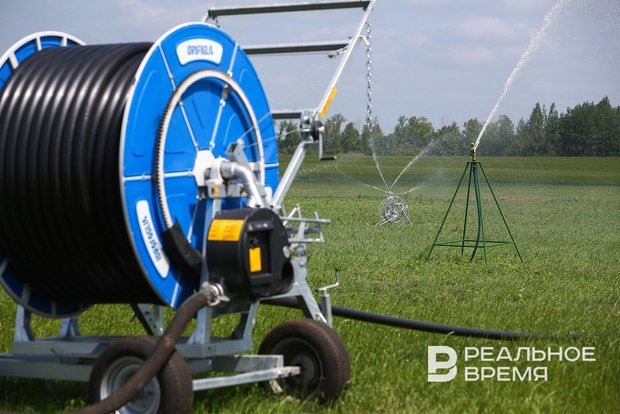
Contractors for four regions to be defined in Kazan
Won’t it turn out that the united institution will shift some burden to the shoulders of the republican budget? According to Mars Khismatullin, land improvement works in the regions will still be financed by two channels — federal and regional.
“There are federal targeted investment programmes when federal money is spent to renovate and rebuild federal intergovernmental land improvement systems. This money will be transferred to the account of the centre and there are going to be announced tenders to select contracts to build and renovate facilities,” Mars Khismatullin explained.
So Moscow formally delegated the centre in Kazan the duties of repairing federal land improvement facilities. But in fact every facility is going to be subjected to a federal inspection, awarded efficacy scores and then be up for auction. Due to this, the accurate budget cannot be determined in advance. But market players assess that it can vary from 200 million to 500 million rubles a year.
Moreover, regional land improvement programmes will continue operating through regional agricultural ministries. “They will receive applications from agriculturists, while land improvers will help them prepare documents in joint projects designed to repair and renovate land improvement systems,” specified Mars Khismatullin.
We will add that the Russian Agriculture Ministry’s order was signed as early as in December 2022. It aimed to “conserve key goals of the activity of the reorganised institution” handing over all property to the new institution as well as land parcels in all four regions.
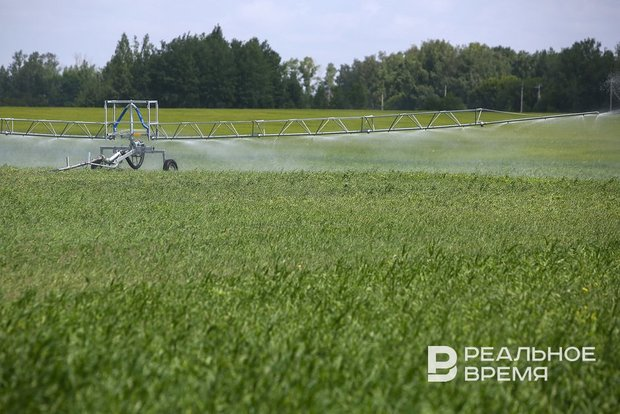
Nizhny Novgorod land improvers flee from Tatars to Muscovites
However, the order doesn’t spell out the goal of the reorganisation. However, it is seen in the amendments made to the federal law On Land Improvement late last year. A new chapter on “water supply and discharge contracts” that improves water utilisation for land improvement was added then.
“The watering cost doesn’t exceed 5% of agricultural production expenses on average, while the harvest during a drought increases two or three times compared to rain fed lands,” reads an explanation to the bill.
“At the same time, there wasn’t envisages any necessity of agreement of the technical possibility and water utilisation terms with the institution when signing the agreement, due to which the needs of the sector and agricultural producers aren’t fully considered when distributing water resources from land improvement systems, which entails a deficit of water resources and violation of technical conditions of the use of public improvement systems, poorer harvest of crops.”
In other words, the enlarged organisation will be designed to protect the countrypeople’s interests in the search for water source. Despite the good objectives, regional authorities weren’t happy about joining Tatarstan. For instance, the authorities of Nizhny Novgorod were against the union as early as last November writing a letter to Russian Agriculture Minister Dmitry Patrushev.
“The situation is unclear for us. A public land improvement programme has been operating since 2016, regions are given a lot of money. This year Nizhny Novgorod has been allocated 200 million rubles. At the same time, there is made a decision that will lead to a fall in the personnel and a loss of process management,” the local authorities complained.
In the end, the land improvement administration of Nizhny Novgorod was annexed to Moscow.
“The current works stopped. There is no independence, there is no account, we cannot trade”
The governor of Kirov Oblast also turned to the Russian Ministry of Agriculture with a similar petition but did not manage to reassure the federal ministry.
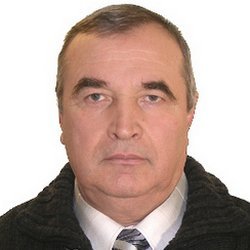
According to him, more than a million of arable land is not ploughed in Kirov Oblast. There were held meetings, many land cultivation projects were prepared for two years to persuade agriculturists to do it.
“We financed it during the first year, we introduced a score system during the second year. If a farmer scores 80 points, the state compensates for 50% of the costs. We have 9 projects in 2023 that were selected, money hasn’t yet been allocated, the limit is over,” Grebenev is concerned.
The land improvement system in Mari El is in a bad state. Nowadays the republic doesn’t have its own programme, major investments in new improvement facilities haven’t been made since 2019. “Federal subsidies are spent only to keep the existing facilities,” said head of the land improvement office in Mari El Yelena Rastorguyeva.
According to her, 21 million rubles are allocated every year for these purposes. 1,274ha of arable land is provided with water, 2,240ha is dried with this money. “If we calculate according to standards, we need another 10 million. But we work with what we have,” she noted.
Republican agricultural producers stopped participating in contests to receive grants. The last time they received 38 million rubles of grants was in 2019. This money was spent to water lands. “It is mainly those who grow vegetables in the open ground (cabbage, cucumbers). But last year the countrypeople didn’t participate in grant contests. Federal money was allocated only for land improvement works,” noted Yelena Rastorguyeva.
“By uniting with Tatarstan we hope the region’s positive experience will be brought to our republic. This year Mars Khismatullin has visited us, delivered speeches at our meetings, talked with our farmers. We will try to wake the republic up, interest farmers in using Kazanka watering machines and produce more vegetable harvest together with him,” the speaker said.